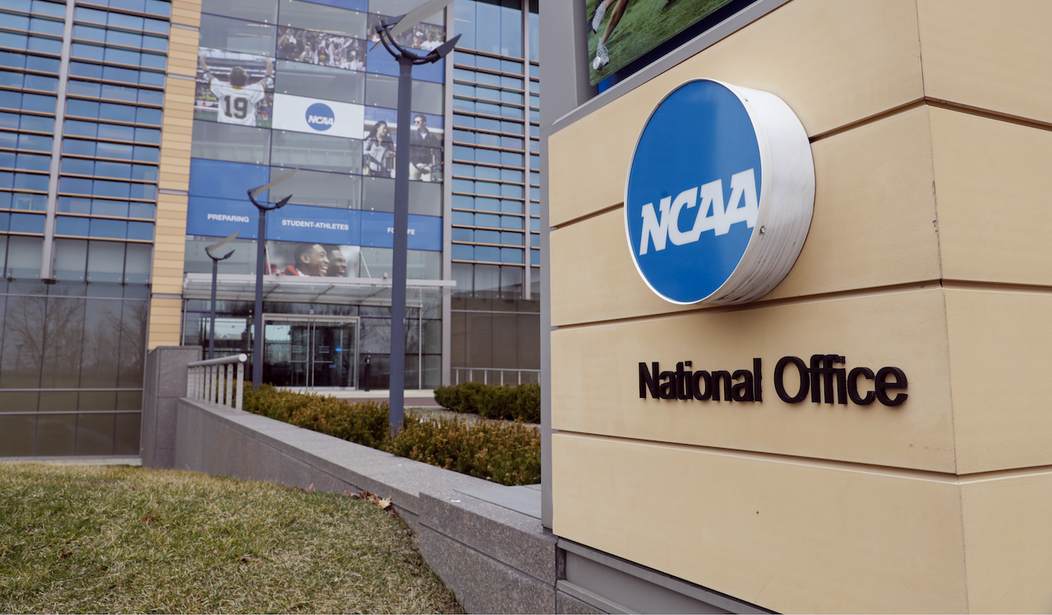Since my days as a student at USC (the real USC – the University of Southern California), I have been a die-hard fan of college football. I love to watch the competition, skill, and heart that players, teams, and coaches put into this truly all-American sport. But the sport I love is changing, and not for the better.
In this, I agree with Clemson coach Dabo Swinney, who recently levelled a modest criticism of those changes, saying, “I’m not against NIL at all, what I am against is anything that devalues education -- that’s what I’m against.” For this and similar comments, the coach was pilloried as regressive, racist, and hypocritical, and attacked personally for his strong Christian faith and trademark Southern drawl.
In fact, his recent statement merely clarified remarks made a month before, in which he warned against “tampering . . . and manipulating young people” as a part of the NCAA’s “name/image/likeness” (NIL) endorsement program, which allows collegiate athletes to make money from their on-field talents. Once again, it was a modest critique, and in hindsight, Swinney’s comments were clearly prescient.
Thus is the vindication of Dabo Swinney, and all the collegiate sports fans who are witnessing their beloved sports crumble away.
To say college athletics have gone off the rails is an understatement. Even supporters of the NIL system would be hard-pressed to disagree with the “Wild West” scenario predicted by coaches like Swinney.
Recommended
Education? Only in-between meetings with the agent, and only if the athlete cannot go pro in three years. Some schools do better than others with graduating players, but education, at least in the cash-cow sports of football and basketball, is only an afterthought – if that.
We are on the playing field created by a governing body that ignored the writing on the wall for years until June 2021, when the Supreme Court ruled in a 9-0 decision that the NCAA’s long-standing prohibition on athletes receiving benefits violated anti-trust laws. Overnight, college athletics stepped into a new world, which the NCAA was predictably unprepared to handle.
The debate about paying players should have hardly caught the NCAA by surprise, especially as an explosion of media coverage money over the last few decades has raised the stakes to new and obscene levels. In 2020, for example, the Southeastern Conference signed a 10-year, $3 billion deal with ESPN. New facilities at schools, designed to attract the best recruits, cost well over $100 million to build. Alabama football coach Nick Saban made nearly $10 million – just last year.
Clearly, there was a “money” problem in need of fixing, but the NCAA’s dithering until activists were calling them “slavers,” while state legislatures began stepping-in and anti-trust lawsuits worked their way up to the highest court in the land, did not leave it in any position for implementing clear and correct solutions.
The interim NIL guidelines issued by the NCAA days after the ruling were vague, and punted legal guidance to state or institutional bodies to decide. “The current environment – both legal and legislative – prevents us from providing a more permanent solution and the level of detail student-athletes deserve,” went the cop-out. Just this month, a year later, the NCAA has done little more, issuing a weak update to its interim rules, that tries and fails to put the genie back into the bottle.
In today’s ultra-sensitive “woke” world, it is no wonder why activists might think the disparity of riches (and the racial composition of the groups to which those riches were, or were not, shared) was, perhaps, a bad look. For fans too, it became increasingly difficult to stomach millionaire coaches getting multi-million-dollar payouts for poor performance, when players suffered far worse punishments for incidents completely unrelated to on-field play.
Is today’s new paradigm where the “best interests” of players is measured only in the value of an NIL deal, any better? It is doubtful, but that is where the NCAA’s somnambulance has left us.
Like the NBA and the NFL before it, another once beloved American sport is now fading. When fall football seasons starts again, I still will be watching, but no longer with the excitement and pride of years past, and with so many commercial announcements inserted into each televised game, it has become increasingly difficult to follow the flow of the game itself.
Bob Barr represented Georgia’s Seventh District in the U.S. House of Representatives from 1995 to 2003. He served as the United States Attorney in Atlanta from 1986 to 1990 and was an official with the CIA in the 1970s. He now practices law in Atlanta, Georgia and serves as head of Liberty Guard.

























Join the conversation as a VIP Member